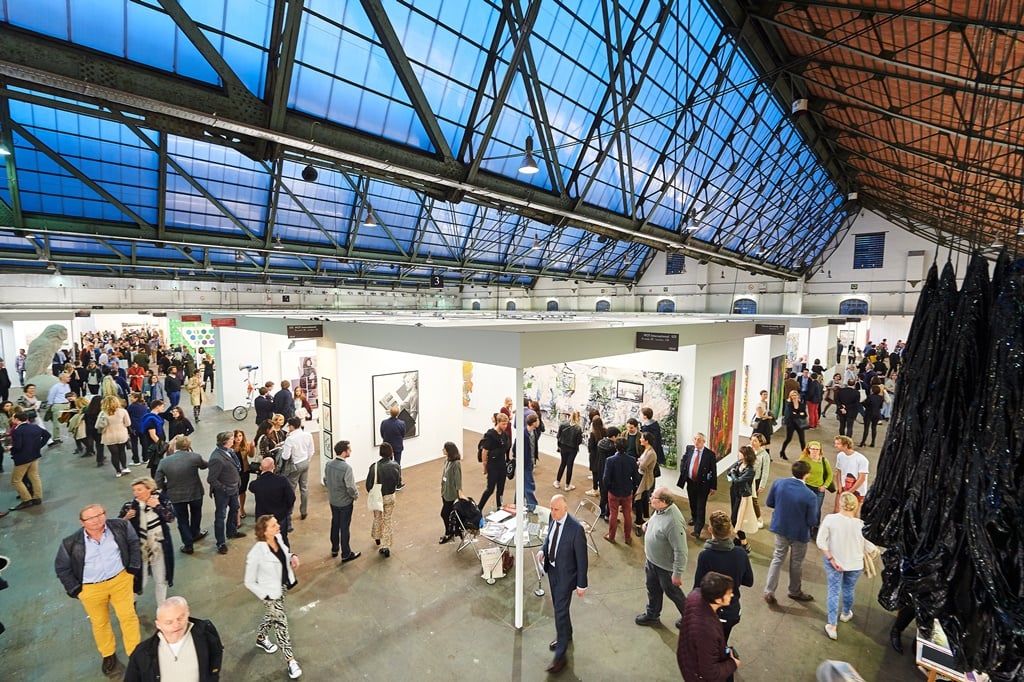
When the MCH Group, the Swiss expo conglomerate that owns Art Basel and its associated fairs, announced in March that it would expand its involvement in the international art market by building “a new portfolio of leading regional art fairs,” few people in the trade considered the implications, even after the following line: “The portfolio will be built through partnerships with experienced partners and could include joint ventures, acquisitions and new art fair launches.”
Now, MCH’s possible purchase of the well-regarded Art Brussels fair have some in the industry scratching their heads.
artnet News has received information from two anonymous sources stating that representatives of MCH met with representatives of Art Brussels in late April to discuss a possible purchase. A third well-placed artnet source suggested yesterday the sale had already taken place. When artnet News called and emailed MCH and Art Basel for confirmation, a representative responded with the following statement: “We are in discussion with a number of potential partners, about a number of potential art fair collaborations, but at this early stage we aren’t commenting on specific fairs that we are considering collaborating with.”
While MCH’s March press release stressed that the new regional fair portfolio would be run by local teams in cities not already served by Art Basel—Basel, Miami, and Hong Kong—the direct involvement of Art Basel’s parent company in the art fair business could potentially water down its winning brand. The Basel-based company operates Design Miami and Design Miami Basel along with another 37 events worldwide.
Art Brussels is organized by the Belgian company Artexis Easyfairs. The fair’s 34th edition took place at a new location this April—the turn of the century former customs house Tour & Taxis, situated in Brussels’ downtown—with a 141-gallery roster, and over 25,000 visitors, according to its end of fair report.
The fair announced in February that the 2016 edition would be the last under the leadership of Katerina Gregos, artistic director since 2012.
Art Brussels 2016 ran April 22–24 at its new location, Tour & Taxis. Photo David Plas, courtesy Art Brussels.
The number of art fairs around the world has ballooned over recent years, with 180 international events crowding the art world calendar. So how exactly will MCH’s regional fairs fit into the cramped art fair landscape, a hundred years after the “founding of the modern trade-fair industry in Switzerland,” as MCH boasts on its website?
Related: Grow or Go: Do Art Fairs Need to Expand to Survive?
One argument for MCH’s incursion into the art fair business is that, handled properly, it could reinforce the region-specific management and structure of local fairs and put efficiencies in place to maximize its profits through economies of scale.
A less optimistic scenario equates MCH’s move to buy local art fairs with the global phenomena of mergers and acquisitions, where large corporations like the Swiss events giant could see short-term benefits on their balance sheet while eating up the competition. The direction of Art Basel’s parent company is currently anyone’s guess.
Artexis Easyfairs has not responded to our request for comment at the time of publication, but Anne Vierstraete, the Managing Director of Art Brussels, did. In a written statement Vierstraete wrote:
“We know MCH very well. We are their clients with all our fairs within Artexis Easyfairs that take place in Switzerland as they own all the venues there. So of course we also often discuss about our mutual art fairs. If a real opportunity in a win/win context and with an evident added value for the future development of Art Brussels might occur, we would be willing to discuss a possible transaction. But no such transaction has been signed yet.”
Additional reporting by Brian Boucher.